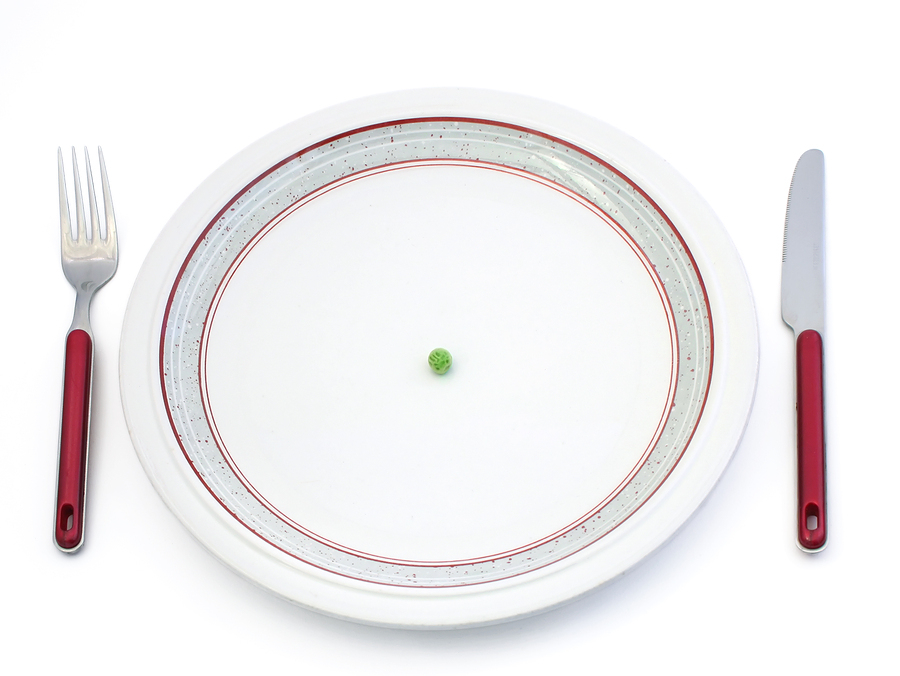Recently I had to interview a young teenage girl who weighed 18 stones – so I’ve been interested to watch not only BBC2’s The Men who made us Thin about the dieting industry but also another recent programme, ITV1 Tonight’s The Great British Diet. 
And one of the conclusions I’ve come to is that the reason obesity is on the increase is simply that many people have unrealistic expectations of dieting, which often seems to favour the extreme. For example, my teenage interviewee – whose story about how she ‘eats normally’ and doesn’t understand why she is so fat (and worryingly neither did her family) appeared in a women’s magazine – kept a food diary for me and discovered she was eating over 3000 calories a day. Yet, having been shocked into cutting back, she then told me she is trying to stick to 500 calories a day (when the normal amount for a woman is 2000.)
But is any ‘diet’ really to blame? Presenter Jacques Peretti certainly seems to believe commercial diets – whether it’s Weight Watchers, Dukans, fasting or slim shakes – are to the biggest evil. His programme, The Men who made us thin, put the blame for obesity firmly at the door of the commercial diet makers. He believes commercial diet producers have hit on an amazing product that means they are in business even when they ‘fail’ – diets don’t work so people fail but despite the failure of the product, keep on going back to them. Dieters who’ve fallen off the wagon then eat more and so end up even more obese.
While I am not saying commercial diet producers have not hit on a great business plan, I got fed up of him tracking Mr Dukan down and then the Weight Watchers people and then the slim shake people (and many more) and just saying bluntly and rudely to them ‘your diets don’t work do they.’ To which they then said they did and Peretti then produced the same old evidence that said few dieters manage to keep the weight off within two to five years.
The flaw with his way of thinking was that surely if you are a commercial diet producer you do want your diets to work long term. Why wouldn’t the slim shake people want everyone to buy their products for the rest of their lives? Why would you want dieters to fall off the wagon and not buy them – even if they do come back again.
His reasoning made no sense – it didn’t make allowance for the fact that dieting is a personal thing. Commercial diet producers have, like any other successful business, tried to give the public something they want. Many people don’t want to simply eat healthily and cut down on calories losing weight slowly as that’s too hard – they want a ‘plan’, a ‘pill’ a quick fix that will work fast. The fact is the diets do work – if you stick to them.
But the biggest flaw in his programme was that he did not quote any doctor on how people should lose weight. Even the woman spokesman for Weight Watchers – when accused that their diets don’t work long-term – said, ‘well, we can’t just do nothing’. Quite. It would also have been great to know why the dieters who did manage to keep the weight off for two to five years were successful when so many are not. Alas, we we were never told so after an hour of watching this, I came away having learnt precisely nothing.
Another disappointing programme was Tonight’s offering on the average British diet. One of the problems of the media generally is to continue to divide food into ‘good’ food and ‘bad’ food. So it was decided that cereals, toast and fruit juice were all bad. Sugar has become the latest enemy with a nutritionist named Amanda Hamilton going from her ‘healthy diet’ to the ‘average British diet’ – some 250 calories over her usual 2000 calories – and somehow putting on 5Ib in one week.
Again, Ms Hamilton was an unfortunate choice for this patronising experiment designed to show how everyone (apart from Ms Hamilton presumably) how bad their diet was. The issue here was Ms Hamilton’s ‘normal’ diet with its ‘bird seed’ snacks and agave syrup, appeared too faddy and frankly looked extremely low in calories – I would hazard a guess her ‘normal diet’ is somewhere between 1250 to 1500 calories and not 2000 – and with no mention of lean meat, fish, did not add up to a conventionally healthy one. Her usual breakfast alone was only 200 calories (is that really enough to sustain a busy mum of two? It is a long way from the recommended 600 calories you should eat per meal).
Anyway she then ate this apparently average British diet – breakfast biscuits, baked potato with cheese, snacks of sweets and cakes and macaroni cheese and fish and chips and put on 5Ib in just a week. If she was eating just over 250 calories extra a day for seven days it is scientifically impossible for Ms Hamilton to put on 5Ib (since 1Ib of fat equals 3,500 calories). But quite apart from that, her two diets – her usual one and her British diet – are just too extreme to make this a credible experiment.
And so the point of this post is…? It is a great shame that dieting has to be one extreme or the other. A healthy diet contains everything – and there is certainly room for chocolate, and the odd take away in it. Eating healthily does not mean denying yourself food – limiting yourself to an occasional dark piece of chocolate or only two coffees a day or one glass of wine a week as Ms Hamilton virtuously says she does. And neither does it mean just eating processed foods, take aways or biscuits for breakfast.
Going back to my teenage dieter – forget making her diet healthy with veg and fruit right now (that might just be a step too far at first for a family that just eats chips and kebabs all the time) – if she just stuck to 2000 calories a day of any food, she would lose weight. It is a shame that somewhere the message that you can eat what you want – as long as everything is in moderation – just doesn’t seem to make good TV.



